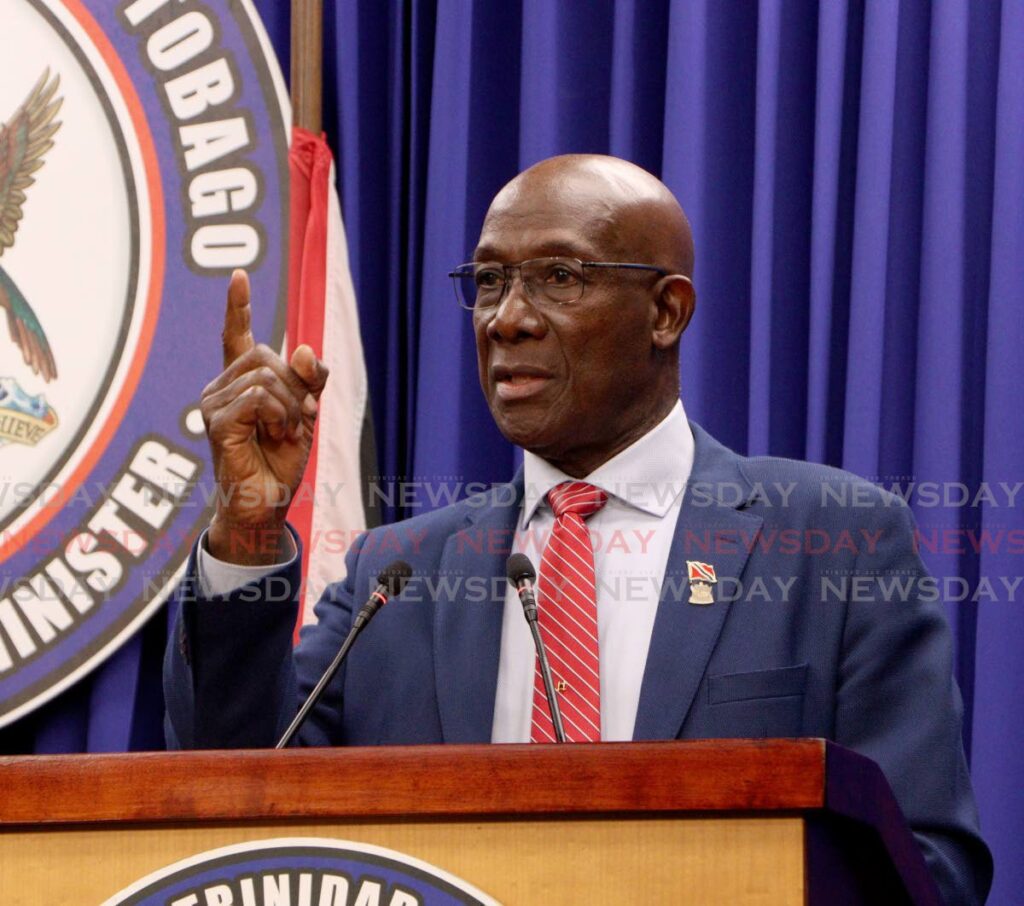Respectful words, strong leadership

THE EDITOR: John Acton (1834-1902)'s famous quote, “Power tends to corrupt, and absolute power corrupts absolutely,” serves as a stark reminder of the risks of unchecked authority.
Prime Minister Rowley has drawn growing criticism for his increasingly harsh and at times derogatory language – a significant shift from the more respectful tone he maintained as leader of the opposition from 2010 to 2015. His rhetoric as Prime Minister raises important questions about the role of language in leadership.
During his tenure as opposition leader, Dr Rowley’s public comments were mostly respectful, allowing for civil discourse. However, since becoming prime minister his language has at times taken a more troubling turn.
In one notable exchange with businessman Inshan Ishmael, Rowley responded to criticism by saying, “kiss my a---” and, “You go to hell!” Many citizens, who expect dignity from their leaders, expressed disappointment, noting the lack of courtesy expected from a national figure.
This shift extends beyond isolated exchanges. In defending industrialist Navin Jindal against opposition critiques, Rowley dismissed opposition members as “louts” and “miscreants” – words that did not address their concerns but rather diminished their legitimacy.
Such language contributes to an erosion of civil discourse, not only within Parliament, but across the nation. As Prime Minister, Rowley sets a standard for the country, and his words shape public dialogue both domestically and internationally. When the discourse deteriorates, the chance for constructive conversation diminishes as well.
Young people, in particular, look to national leaders as role models. Disparaging language from such a high office undermines this influence and weakens the integrity expected of leadership. Leadership should come with a level of respect, especially given that authority is a privilege conferred by the people.
Rowley’s use of terms like “jammetry” and “dotishness” further exemplifies a dismissive approach that can alienate and dismiss the concerns of citizens. Such rhetoric – whether it involves “louts,” “miscreants,” or other insults – creates a climate where genuine issues are undermined by the power of negative language.
When respect for language fades, so does discipline in leadership. Words matter; they have the power to uplift or to divide. Rowley’s use of derogatory language erodes the respect for his office, underscoring the need for leaders who use language to build bridges rather than barriers.
Citizens, political allies, and opponents alike must demand a higher standard, urging leaders to rise above petty insults and speak in ways that unite and inspire the nation.
I have been told a paraphrase of Acton’s quote is: “Absolute power releases you to be the derrière you always were.”
Ultimately, we must hold all of our civil servants accountable for their language, even if they are the prime minister.
DENNISE DEMMING
via e-mail

Comments
"Respectful words, strong leadership"